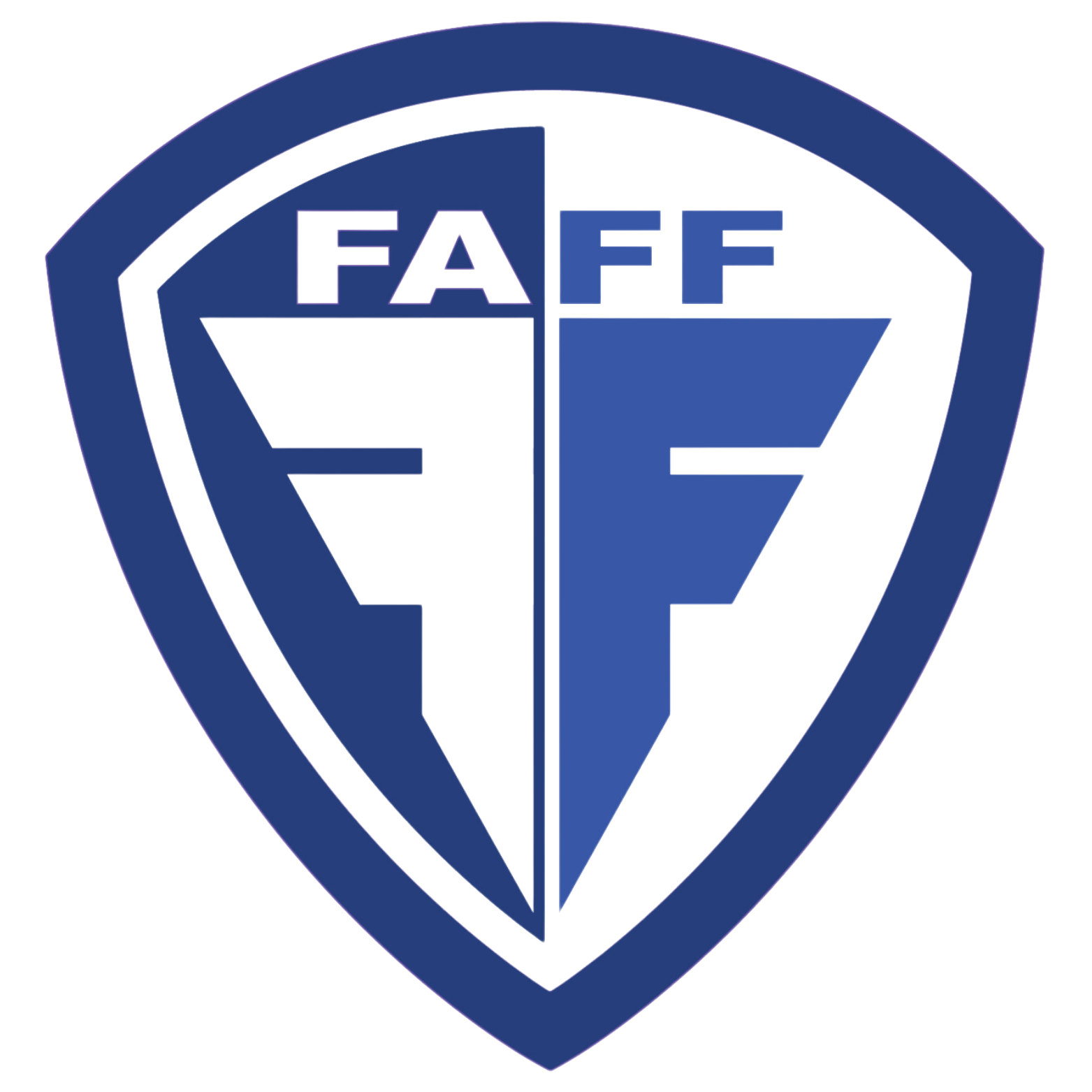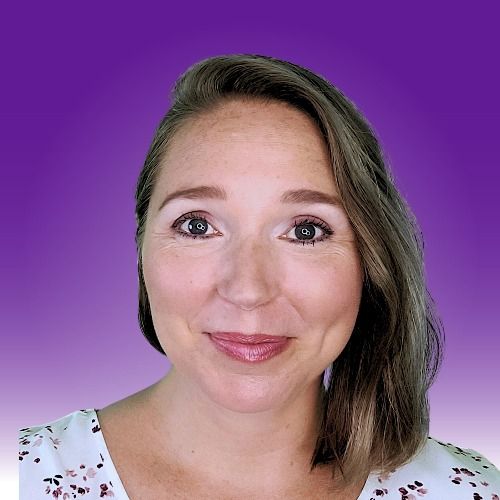Episode 22
Film Production 101, with Jill Bugbee
Audio
In this episode of the Faith in Family Filmmakers podcast, Jaclyn interviews Jill Bugbee, a producer with 20 years of experience mainly in corporate and commercial productions, and now in feature films. Jill details the roles and responsibilities of producers, such as funding and vision-holding for executive producers, and creative, logistics, and finance management for producers. Jill also discusses strategies for independent filmmaking, including securing tax incentives, managing low budgets creatively, and the importance of prayer and perseverance in the filmmaking process. Jaclyn and Jill reflect on the parallels between character development in film narratives and personal growth in real life. The discussion highlights the transformative journey of pursuing one's calling and the resilience required to navigate challenges and emerge stronger on the other side. The conversation reveals valuable insights for aspiring filmmakers, emphasizing the challenges and rewards of movie production, and the inspirational aspect of storytelling in advancing the kingdom of God. The show includes:
- Jaclyn's Filmmaking Dreams and Confessions
- The Different Types of Producers Explained
- Creative, Finance, and Logistics: The Trio of Production
- The Journey of Independent Filmmaking
- Learning from Past Projects and Looking Ahead
- The Importance of Being Faithful
- Getting on the list: The 75 Top Movies to Watch
- Making the Most of Your Budget
- Top Three Lessons Learned
- The Importance of Prayer
- Character Development in Our Stories and in Us
- We are Built for Story
Jill Bugbee is a film and TV producer, Songwriter, Worship leader, and author. Based in Atlanta, Georgia, Jill Bugbee and her husband, Eric, are the founders of Blue Trail Productions. Early in their marriage, they found common ground in the love of storytelling, filmmaking, and adventure. Since launching their company together in 2004, they have helped many decision makers take their businesses to a higher level. They seek to mentor up and coming filmmakers through their mentorship program, FilmBusters Academy.
Blue Trails Productions Website https://www.bluetrailproductions.com/
FilmBusters Academy website https://www.filmbustersacademy.com/
Jill on Facebook https://www.facebook.com/jill.bugbee.7
Heroes of Dirt Website https://bugbeeweb.wixsite.com/heroesofdirt
Heroes of Dirt on Amazon https://www.amazon.com/Heroes-Dirt-Joel-Moody/dp/B0196DUGDC
Heros of Dirt on Youtube https://www.youtube.com/watch?v=8-HkGj8h0tg
Heros of Dirt is also available on Tubi
The Faith & Family Filmmakers podcast helps filmmakers who share a Christian worldview stay in touch, informed, and inspired. Releasing new episodes every week, we interview experts from varying fields of filmmaking; from screenwriters, actors, directors, and producers, to film scorers, talent agents, and distributors.
It is produced and hosted by Geoffrey Whitt and Jaclyn Whitt , and is brought to you by the Faith & Family Filmmakers Association
Support Faith & Family Filmmakers Our mission is to help filmmakers who share a Christian Worldview stay in touch, informed, and inspired. If you would like to assist with the costs of producing this podcast, you can help by leaving a tip.
Enter the Faith & Family Screenwriting Awards festival
Jaclyn's Actor's Reel Script Writing Workshop: https://www.faffassociation.com/actors-reel
Copyright 2024 Ivan Ann Productions
Transcript
Welcome to the members only portion of the Faith in Family Filmmakers podcast.
Jaclyn:I am with Jill Bugbee today.
Jaclyn:My name is Jaclyn, and I have a confession to make.
Jill:Heh heh heh.
Jaclyn:My husband and I have actually, um, we have been talking about getting into producing.
Jaclyn:But like, the kind of producing that I want to do is more so that I want to write something amazing and then I want to hire people to do it.
Jaclyn:Like, because I know I'm, at least at this point, I'm not ready to direct.
Jaclyn:I don't know how to do it.
Jaclyn:I've only been on set on occasion with my son because he was doing background acting.
Jaclyn:So I know I'm not anywhere near ready to actually pursue that part of it.
Jaclyn:But I know the right people that I could put together a really good team.
Jaclyn:This is what I'm thinking.
Jaclyn:So can you explain to me, like, okay, here's what you need to know, Jaclyn, if you want to do that.
Jill:Yes, absolutely.
Jill:Absolutely.
Jill:I'm a producer, uh, now of, about 20 years, but my producing, experience is more on the corporate commercial side, and we did so far helm one feature film.
Jill:So that's pretty much the extent of my producing.
Jill:Um, we've done over, gosh.
Jill:750 productions at this point in terms of the smaller scale of productions like commercials all that stuff.
Jill:But anyway, there's a difference with executive producing and regular producing and regular producing is still even broken up in different sections too, but with executive producing that would be the title for you guys.
Jill:They aree the vision holders You know, they're the ones that really see...
Jill:Out on a ship, you are the ones out on the top of the mast and you say, I want to go that way.
Jill:The regular producers are the ones that are driving the ship.
Jill:and If they don't drive the ship, it's not going to move forward.
Jill:But the executive producers are the ones on the mast saying, that's where we're going.
Jill:That's where we're going.
Jill:That's where we're going.
Jill:So really that's the distinction between the two.
Jill:Um, particularly executive producers also are the ones that have more of the burden to raise the funding.
Jill:They have more, um, contacts and connections or even putting the seed money...
Jill:You know, the seed money is the development money that actually, Pushes the project forward, you know, that, little gas in that ship, so to speak, pushes it forward out in the sea, in the first place.
Jill:So that's really the distinction.
Jill:Now, I function as also as executive producer and producer.
Jill:The actual producer can be broken down pretty much in three different areas.
Jill:There is the creative producer, uh, there's the logistics producer, and then there's also the finance producer.
Jill:So the finance producer can also try to raise other funding.
Jill:And the finance producer is more the ones that try to make sure that that project gets film financing, which is called debt financing.
Jill:Advanced money that you get from a financial firm that will advance the money for the tax credit, for instance.
Jill:Whether it's for example 30 percent in Atlanta, they will advance 30 percent of your budget ahead of time so that you can actually make have 30 percent and also That same company can also finance what's called the pre sale.
Jill:So the pre sale is what, distributors estimated what your project, can earn as far as money in different territories around the world.
Jill:So that's a pre sale one.
Jill:They can also advance that.
Jill:That's the finance producer that will get that done.
Jill:You know, also having to complete what's called a completion bond.
Jill:Basically it's like an insurance that your film's going to be completed no matter what.
Jill:That way your, your investors have a peace of mind.
Jill:You're like, Oh, okay.
Jill:It's going to get completed.
Jill:And now the creative producer is the one that's involved with the story.
Jill:The executive producer can also be a writer, but the creative producer can also be the writer or the story developer.
Jill:So they're the ones that make sure that, this film is in the right genre.
Jill:You know, it's not in too many genres because that could be confusing when marketing is finally upon us, right?
Jill:So, what we usually recommend to people is you pick two genres.
Jill:You have like a main genre, whether if it's faith based for instance, and second genre is romance or second genre is adventure, or second genre is coming of age, you know, but you can't be having faith based and uh, coming of age and then all of a sudden it's horror.
Jaclyn:Mm hmm.
Jaclyn:Mm hmm.
Jill:Two main ones because the creative producer will be able to then, do more of the, breaking down of the script, you know, that's the one that they, uh, have to make sure that it has a final audience.
Jill:And then the third part in all of the producers is called a logistics producer.
Jill:And that's the one that actually hires all the crew, and makes sure that we hire all the, um, the cast, the casting director, for example, that gets all the cast together.
Jill:basically, all the scheduling, all that stuff.
Jill:That could also be a line producer, which is the one that really budgets the film.
Jill:And this is what is needed for this role, and this is what's needed for this crew member.
Jill:So yeah, like three different types of producers.
Jill:They could also be executive producers, but the main distinction really is the vision holder, and then the ones that actually, can drive the ship.
Jaclyn:That's good to know because I have, like I've had ideas for certain people that I would love to work with on certain projects where I'm like, okay, I think this person would be great to work with me on this because of this reason.
Jaclyn:And sometimes it does have to do with money, not necessarily like where I would be depending on them to you know, get the money, but more like I can see that they are really good stewards of the budgets that they work in.
Jill:Right.
Jaclyn:And so, if I know, I've written the script to be a lower budget, and I know that, okay, I can get a certain amount, but if I can't get this higher amount, I want to work with somebody that's a good steward of the budget that they're given because, It's better to have somebody that can make, you know, a movie that looks like it was made on a larger budget.
Jill:Yes,
Jaclyn:hmm.
Jaclyn:Mm
Jill:Absolutely, absolutely.
Jill:And most independent films are anyway.
Jill:I mean, very, very few films are, are even on the higher budgets.
Jill:Even with those quote unquote independent films that are higher budget, there's still an involvement of the studio somehow.
Jill:You know, that there's still an involvement of the, the Lionsgate, for instance, they're called more like the mini majors, you know, so yeah, it's still, in our experience and of course, in the film world, everybody knows that 95 percent of budgets get stuck on stage one, which is the packaging, the funding, right?
Jill:But once that's Taken care of, the ship is, moving.
Jill:So,
Jaclyn:Yeah, yeah.
Jaclyn:it does feel overwhelming, you know?
Jaclyn:Like, I think when we first met and, uh, you know, you were explaining all of, how to make a movie and for me, I was like, okay, they do definitely make it seem like this is a possibility.
Jaclyn:it never occurred to me before that, it could be something that I could wrap my head around.
Jaclyn:So that helped to demystify the process.
Jaclyn:You know, so it was really good for that.
Jaclyn:But then I also realized at the time, like, I'm so not ready for that though.
Jaclyn:But, but it showed me that you guys did know what you were doing, right?
Jill:After falling flat on our faces in the beginning,
Jaclyn:but you're honest about that, right?
Jaclyn:Like it, that's one of the things that I love, you know, when I'm talking with people and they're willing to talk about like, Okay, so this is what I did wrong, but this is what I learned about it.
Jaclyn:You know, there's, there's something that's kind of, um, it's relatable, right?
Jaclyn:Like I can connect with that because I didn't do everything right the first time I tried something new.
Jill:yes!
Jill:Yes, nobody does though, you know, but not everybody's willing to talk about it, right?
Jaclyn:Mm hmm.
Jill:I mean, the Lord is of course above all honest, right?
Jill:So we should also be very honest, um, and transparent, especially if it has the fruit of letting somebody see and then they're like, okay, I'm not going to do that one.
Jill:I'm going to do it this way, right?
Jill:Because it's helping everybody gain, you know, wisdom from your failures anyway.
Jill:Kind of like turning your failures into a win somehow if you share with people, I think, because you're like, okay, then if I help somebody save years and money doing it this way instead, you know, it's
Jill:much better.
Jaclyn:Yeah.
Jaclyn:So what's in store for you and Eric now?
Jill:Well, for now, I mean, besides really getting your film off the ground, um, that is more of an ambitious one because like I said, we have a higher budget for that, but we're going for the best for now.
Jill:And, um, after that, we're also, developing other, um, stories, um, not so much In script writing, like we love story development.
Jill:We're more the ones...
Jill:from a producer's perspective.
Jill:we can see like, okay, this is needed in the market, Right?
Jill:So we kind of like to identify more like the stories that could work.
Jill:And then we also love doing the structures of films, you know, and then the character development, all the, all the things that are involved in, uh, story development.
Jill:But as far as script writing, Eric is more script writer.
Jill:I'm not a screenwriter.
Jill:Um, but I love story development.
Jill:So,
Jill:so yeah, we, are developing quite a bit of, um, projects as well, but our, first priority is definitely to get, Solitary off the ground.
Jill:That's Solitary Refinement: that's the complete title - off the ground, because I think after that, there's going to be a lot of opportunities to also, you know, once we crack the code, so to speak, in funding, and then we will be able to fund other projects, not just ours, but other people's.
Jaclyn:Mm hmm, That sounds fantastic.
Jill:So we're really doing a lot of networking, in Atlanta, um, attending, you know, film markets, film festivals.
Jill:And so it's really a matter of, who you know, and trying see who you want to work with because strategic partners are important.
Jill:Partnerships are important in filmmaking, right?
Jill:Especially on the producing side of things.
Jill:We're super happy.
Jill:We've already secured at least two financing people that will put up the tax incentives and the pre sale.
Jill:So it's a matter of really trying to get the cast right, like that name, recognizable name.
Jill:And then, after that we should be able to get the rest of the funding.
Jaclyn:Yeah.
Jaclyn:Collecting the ducks,
Jaclyn:lining
Jaclyn:them up.
Jill:It is.
Jill:And there's also that catch 22 sometimes, you know, like, I need this one first, but then again, it's like the chicken before the egg.
Jill:Does the chicken come before the egg?
Jill:Or the egg comes
Jill:before the chicken?
Jill:But it's just about being faithful, you know?
Jill:Faithful with little things and the Lord will make you faithful with much.
Jill:So I believe that's been like the story of our lives.
Jill:tests you with faithfulness.
Jill:Are you, are you going to be faithful with one movie or, one song or one book, you know, one student like Jaclyn, like one story.
Jill:God will always test you on that one.
Jill:at first, right?
Jill:And then he'll be like, okay, then you're ready to be faithful with many and with much, you know...
Jill:The parable of the talents that Jesus talked about, right?
Jill:That's always like at the forefront of our hearts and minds.
Jill:It's kind of like, well, okay, if we're faithful with one, you will make us faithful with many, you know?
Jaclyn:Mm hmm.
Jaclyn:Yeah.
Jaclyn:And you know, I think the fact that you guys didn't give up.
Jaclyn:You know, when you were producing Heroes of Dirt, like you said, you were under budget.
Jaclyn:I mean, You
Jaclyn:You didn't budget correctly, you know, it took you like seven years, you were having kids, like so much life happened, you didn't pay yourselves, like so many things that you would do differently this time around.
Jaclyn:Um, but you still did it.
Jaclyn:You know, like, you finished.
Jill:Yeah, and not just finished, but that's why when we finally made it on the list of 75 movies to watch that year with Vulture.
Jill:com and New York Magazine with all like these big titles like Star Wars, Force Awakens, we felt like we didn't really deserve to be there on that list.
Jill:But the fact that like, we worked so hard and actually, you know,
Jaclyn:hmm.
Jaclyn:Mm
Jill:...sacrificed a lot and for the sake of like, okay, we just have to finish because it's a matter of faithfulness, right?
Jaclyn:Yeah.
Jill:And
Jaclyn:Yeah.
Jill:so, yeah, that was amazing.
Jill:Cause that list opened up doors for us like nothing, because we could prove that Oh yeah, we, we do have what it takes to be on that list.
Jill:you
Jaclyn:Yeah.
Jaclyn:And you did it without a, like a known name or a known face, like, and so did you understand...
Jaclyn:before you got, you know, casting and filming and all of that, did you know that that's something you should have done?
Jill:Ah, no.
Jill:Mm hmm.
Jaclyn:When did you find out, when in the process did you find out you should have had
Jill:that.
Jill:After the film was done.
Jaclyn:Oh, no.
Jill:if it was under budgeted, then you, can't afford like the big, the bigger and recognizable names, right?
Jill:Unless you know them personally, or you know, somebody that knows them.
Jill:Um, but it's also a movie that was like I said before, in extreme sports.
Jill:So we had to also stay authentic to that world, and so we really hired a lot of the, X Games champions of BMX, freestyle.
Jill:So we had to really kind of maintain that authenticity.
Jill:But then again, I think in hindsight, we could have added, you know, some of the other roles that are more recognizable, right.
Jill:To get a little bit more international, weight in terms of selling it out there.
Jill:So yeah, like, yeah, we found out after.
Jaclyn:Yeah.
Jaclyn:Yeah.
Jaclyn:Yeah.
Jaclyn:Like you, I mean, you have gotten distribution, so that's fantastic, but, um, it probably would have happened faster and, you know, easier had you had that known face.
Jill:Yes.
Jill:even one.
Jaclyn:But it, you know, you don't realize it.
Jaclyn:when you're watching the movie, you don't think to yourself, like, I don't know any of these people,
Jill:Right!
Jaclyn:I think part of it, Maybe for me because, like I don't necessarily know the world of BMX, and so for me, I kind of felt like, oh, I'm watching this other world anyways, and so, yeah, I wasn't expecting that I should have anything familiar happen.
Jaclyn:But I do need to that, It does not look like a low budget movie.
Jaclyn:Like, all the stunts and everything like that, it was all so well done.
Jaclyn:and even, the police chase, like,
Jill:three, three, five million, I think that's what people were thinking.
Jaclyn:Yeah, yeah, like, cause, I mean, for a police chase, that's not something that you think you're going to have in a low budget movie.
Jaclyn:That's one of the things, as a writer, I know, keep that out of there, you know?
Jaclyn:Like, if I want to keep the budget down, get rid of anything like that.
Jill:Right, right.
Jill:and then that, also comes with, um, being resourceful because the Lord has gifted me in terms of outreach.
Jill:So when I outreached the city, it's like, Hey, you know, this is a little movie, but then again, these are the benefits of this movie from the city.
Jill:So they also gave all the police cars and all that stuff off for free for us.
Jill:So
Jill:Yes.
Jill:They even allowed us to bulldoze.
Jill:a public park for all of the X Games
Jill:champs.
Jaclyn:The jumps and stuff?
Jill:Yeah, because we also said like, hey, we're going to get ESPN out here to cover it.
Jill:So it had a little bit more of a win win for the city.
Jill:So it was marketing the city as well.
Jill:So they loved that because, you know, there's no noteriety for the city, there's this going on.
Jill:So, you know, they just gave it all to us for free.
Jill:So if you filmmakers out there have something that would potentially benefit a city or a county or something like that.
Jill:And if you have a spin towards that then it's good for you to contact them and say hey, this is to benefit our city.
Jill:that way you can get free resources like that.
Jill:So from that to restaurants to businesses as well.
Jill:If you need for example, like we need a lot of fencing, you know They just gave it to us and we did thank yous and all that stuff.
Jill:So you could get a lot of things off your budget kind of like offset by really just outreaching to your community...
Jill:business community.
Jill:Yeah, for sure.
Jaclyn:Yeah.
Jaclyn:I I was speaking.
Jaclyn:with another producer at one point and he was saying sometimes it's easier to work in the smaller towns because they're more excited about, you know, being part of
Jaclyn:this project.
Jill:Right.
Jill:For example, in Atlanta, you know, it's become now the, the filming hub of the world with, so many soundstages popping up left and right.
Jill:It's crazy.
Jill:It's crazy.
Jill:it's bigger now in the footprint of soundstages, um, behind California.
Jill:So now California first and then us.
Jill:And then New York, so we've just surpassed New York, but it's a lot, but I think it will surpass Los Angeles soon because the tax incentives here are much, much better, like 30%.
Jill:And you only need a minimum of 500, 000 to start to actually take advantage of it.
Jill:And so yeah, like really taking advantage of the city, city councils, the business community...
Jill:really trying to see like, Hey, what can I do for you, to market you?
Jill:And then, yeah.
Jill:You know, what can you do for our film to help us out?
Jill:So, yeah, there's a lot of creative ways to get the budget down.
Jaclyn:Yeah, what is something else that you learned in the process of making Heroes of Dirt that you would do differently in the future?
Jill:Yeah, so aside from budgeting correctly, so that's number one, and aside from actually putting in a recognizable name, at least even one, because everybody does it, right?
Jill:When there's a movie, everybody's like, Oh, what's it about?
Jill:And who's in it?
Jill:Right?
Jill:Those are the two top questions.
Jill:What's it about?
Jill:Who's in it?
Jill:Same thing in international markets when you're trying to sell your movie.
Jill:What's it about?
Jill:Who's in it?
Jill:What's it about?
Jill:Who's in it?
Jill:So if you don't have the who's in it, it's not going to sell as well.
Jill:So, those are the, top two.
Jill:Budgeting correctly, at least getting a name, a recognizable name in there.
Jill:And then third, I think, is, um, besides all the perseverance, it's just really not giving up, you know?
Jill:No matter how many obstacles, you face.
Jill:It's kind of like, well, you know, you just have to keep plowing through, especially if after a lot of prayer that you really feel that God is calling you to this, you just have to, you know, get a lot of prayer, covering.
Jill:I think that's one of the things that is really needed, is a lot prayer covering from, trusted, trustworthy friends, intercessors.
Jill:That's one thing that Eric and I have learned over the years is super, super important, um, is prayer.
Jill:Not just us praying, but other people, trustworthy people praying behind you because, you know, we battle not with flesh and blood, powers, personalities, wickedness in high places.
Jill:But, you know, this is a call of God on our lives, and I'm sure it is also on you, and so there's going to be a lot of resistance, right?
Jill:Because anything that would prevent us from walking into our destiny that God has planned for us is going to be there all the time.
Jill:You know, we all, as brothers and sisters in the Lord, our main thing, all of us, really, is to be more Christ like, right?
Jill:In terms of our character, our life, our walk, inside and out.
Jill:That's our identity in Christ, but there's an assignment
Jaclyn:mm
Jill:that is part of it, that is our positional.
Jill:There's the operational, identity in Christ where we have an assignment from the Lord that we're going to accomplish on earth, you know?
Jill:So whether you're put in this field or other fields, I think there's always going to be resistance.
Jill:So yeah, prayer, prayer is important.
Jaclyn:Mm hmm, yeah.
Jaclyn:for Yeah, actually, as you're talking, it's kind of...
Jaclyn:I started relating so many things to screenwriting now.
Jaclyn:I've learned a lot from screenwriting.
Jaclyn:I'm writing a book, okay.
Jaclyn:So,
Jaclyn:So what you just said is kind of like the same as when you're writing a movie.
Jaclyn:You know, I've got my character, but my character is going to be built and have their character arc through the process of pursuing something.
Jaclyn:So as we pursue the assignment that God gave us.
Jaclyn:We're expected to grow in that process.
Jaclyn:That's part of how we're going to be stretched and
Jaclyn:tested.
Jaclyn:And yeah, sometimes it really does.
Jaclyn:But then it can be so exciting too, You know,?
Jaclyn:Like when you, when you take that leap of faith and you do what you know that God is calling you to do, and then God, does his thing and you're like, Ah, we did that!
Jaclyn:You know?
Jaclyn:I mean, it doesn't come without a lot of effort.
Jaclyn:Like, God's not saying, "Here, do this, this will be easy".
Jaclyn:No.
Jaclyn:He's like, "Do this because it will bring me glory", which means that it's going to be difficult...
Jaclyn:for us, you know.
Jaclyn:But he already has the plan.
Jaclyn:But he's not going to waste anything.
Jaclyn:he wants to develop our character through the process of it.
Jill:Absolutely.
Jill:Being more Christ like is really like our main goal.
Jill:But then again, there's the assignment that he has given to each and every one of us because he all created us.
Jill:He also has amazing, amazing, amazing big plans for us, right?
Jaclyn:Mm hmm.
Jaclyn:Yeah.
Jaclyn:Beyond anything we can imagine.
Jaclyn:And, because that's the thing, same with my characters, when I'm writing a movie, my character, my hero, has no idea what he's capable of until after I've brought him through the journey.
Jaclyn:Then he can actually, meet that test at the end and overcome.
Jaclyn:But it's the same with us.
Jaclyn:We have no idea what we're capable of until God brings us through the journey, and reveals that to us where we're like, whoa, I did not know that I was going to be in this position or that I was going to be able to do this.
Jill:Exactly.
Jill:Exactly.
Jill:I mean, even with Jesus disciples, I mean, they started us fishermen, right?
Jill:That's the A world.
Jill:then in the B world is like a completely like, Oh my goodness.
Jill:"I am a fisher of men now?"
Jill:You know, " I'm going to change the world now?"
Jill:So it's, an amazing type of storytelling.
Jill:And I mean, it really is that.
Jill:And, and people are built.
Jill:for story, right?
Jill:The Lord has always created people to be built of story, whether they know God or not.
Jill:So in terms of storytelling, powerful storytelling, the ones that really make an impact in people, especially the ones that advance God's kingdom, you know, whether it's really blatantly Christian or not.
Jill:It could be inspirational.
Jill:It could just be family, but, kingdom values, having kingdom values in the movie.
Jill:It will lead people to really have deeper questions and conversations with people, and that's the start, you know, whether it's a seed or watering a seed in them in the gospel, right?
Jill:So, I believe that yeah, filmmaking is really a huge, um, impact maker, influencer, you know, in our culture.
Jill:It is, a culture, influencer.
Jill:So it's important.
Jaclyn:Absolutely.
Jaclyn:Yeah.
Jaclyn:Well, thank you so much for everything that you're doing to, you know, do filmmaking for the kingdom of heaven.
Jaclyn:And thank you for being with us, and sharing all of your experiences and wonderful insight.
Jaclyn:it's been joy.
Jill:Awesome.
Jill:it's been amazing being here.
Jaclyn:All right.
Jaclyn:God bless.
Jill:You too.





